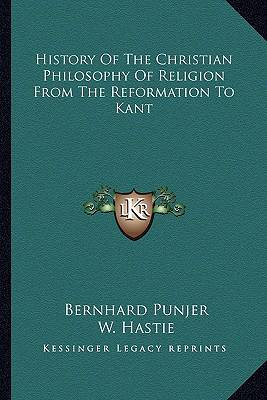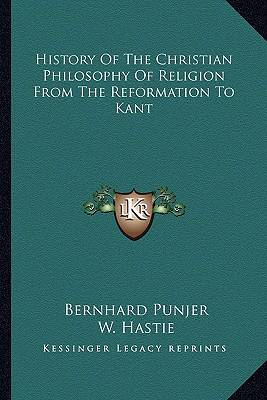
En raison d'une grêve chez bpost, votre commande pourrait être retardée. Vous avez besoin d’un livre rapidement ? Nos magasins vous accueillent à bras ouverts !
- Retrait gratuit dans votre magasin Club
- 7.000.000 titres dans notre catalogue
- Payer en toute sécurité
- Toujours un magasin près de chez vous
En raison de la grêve chez bpost, votre commande pourrait être retardée. Vous avez besoin d’un livre rapidement ? Nos magasins vous accueillent à bras ouverts !
- Retrait gratuit dans votre magasin Club
- 7.000.0000 titres dans notre catalogue
- Payer en toute sécurité
- Toujours un magasin près de chez vous
History Of The Christian Philosophy Of Religion From The Reformation To Kant
Bernhard Punjer
Livre broché | Anglais
69,45 €
+ 138 points
Format
Description
""History of the Christian Philosophy of Religion from the Reformation to Kant"" is a comprehensive book written by Bernhard Punjer. The book is an in-depth study of the development of Christian philosophy of religion from the Reformation era to the time of Immanuel Kant. The author explores the ideas and theories of various philosophers, theologians, and religious thinkers of this period, examining how Christianity evolved and adapted to changing social and political contexts.The book is divided into several chapters, each of which focuses on a particular aspect of Christian philosophy of religion. The author begins by discussing the Reformation and the impact it had on Christian thought, particularly in terms of the relationship between faith and reason. He then moves on to explore the ideas of key thinkers such as John Calvin, Martin Luther, and Thomas Aquinas.The book also examines the Enlightenment and how it influenced Christian philosophy of religion. The author discusses the ideas of philosophers such as Immanuel Kant and Jean-Jacques Rousseau, who challenged traditional Christian beliefs and paved the way for new forms of religious thought.Throughout the book, the author provides detailed analysis and critical commentary on the ideas and arguments presented by each philosopher. He also explores the historical context in which these ideas emerged, highlighting the social, political, and cultural factors that shaped Christian philosophy of religion during this period.Overall, ""History of the Christian Philosophy of Religion from the Reformation to Kant"" is an essential read for anyone interested in the history of Christian thought and its evolution over time. The book provides a comprehensive overview of the key ideas and theories that have shaped Christian philosophy of religion, making it an invaluable resource for scholars and students of philosophy, theology, and religious studies.This scarce antiquarian book is a facsimile reprint of the old original and may contain some imperfections such as library marks and notations. Because we believe this work is culturally important, we have made it available as part of our commitment for protecting, preserving, and promoting the world's literature in affordable, high quality, modern editions, that are true to their original work.
Spécifications
Parties prenantes
- Auteur(s) :
- Editeur:
Contenu
- Nombre de pages :
- 692
- Langue:
- Anglais
Caractéristiques
- EAN:
- 9781162974101
- Date de parution :
- 10-09-10
- Format:
- Livre broché
- Format numérique:
- Trade paperback (VS)
- Dimensions :
- 152 mm x 229 mm
- Poids :
- 911 g

Les avis
Nous publions uniquement les avis qui respectent les conditions requises. Consultez nos conditions pour les avis.






